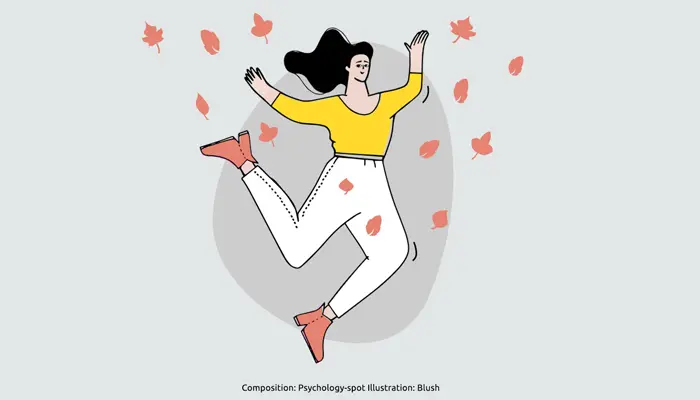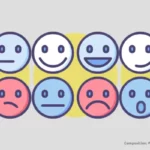
“A philosophy professor wanted to give his students a lesson of life. That day, he entered the classroom and, without saying a word, took a large empty jar and filled it with golf balls.
Then he turned to the students and asked them if the jar was full. The students answered yes.
Then the professor took a box full of small pebbles and poured it into the jar. The pebbles filled the empty spaces between the golf balls. The teacher asked again to the students if the jar was full, and they once again answered yes.
Then the teacher took a box full of sand and dropped it into the jar. Of course, the sand filled all empty spaces between balls and pebbles, so the teacher once again asked if the jar was full. On this occasion the students responded with a unanimous yes.
But not satisfied, the teacher poured two cups of coffee into the jar, which went to fill the gap between sand, pebbles and balls. The students laughed.
At this point the teacher said:
– This jar is your life. Golf balls are important things like family, children, health, friends, all those things you’re passionate about. These are things that, even if we lose the rest, continue to fill our lives.
Pebbles are the other little less important things, such as work and home…
The sand and the coffee are all the rest, the little useless things.
If we fill the jar with the sand there will be no space for the pebbles and the golf balls. The same goes for life. If we waste all our time and energy in small things, we will never have enough time and space for the important things.
At that moment, one of the students raised his hand and asked what the coffee was.
The professor smiled and said,
– It only serves to show that no matter how full your life may look like, there is always room for a coffee to be enjoyed with a special person.”
5 lessons you learn when you get rid of the superfluous
The society forces us to think that more is better. And it makes us believe that the only unit of measure of progress is to have more and more. But most often this is not true. Often “more” means more chaos, more chains, more fear of losing, more worries. Therefore, one of the most important lessons in life is to learn to let go and get rid of anything you do not need. The society has taught you to accumulate, from goods to negative feelings, but the true maturity comes when you learn to let it go.
And when you can get rid of everything you do not need, you will understand that you:
1. Really appreciate what you have
Having more does not mean having more opportunities. How many things you bought are now at the bottom of a wardrobe, forgotten and practically new? Getting rid of books you never read, clothes you do not use, old items that no longer have any value, and those that only occupy space, is extremely liberating.
To the extent that you are freeing space in your home, you also free your mind. Then you will discover that you will begin to appreciate more intensively what you have, because it is something that you have chosen consciously, not something you bought because of the publicity.
2. You are not your things
Too often we identify with our goods. Eckhart Tolle explained that one of the most elementary levels of the ego is identification with things: my toy will later become my car, my home, my clothes, my mobile… Advertising seeks to sell us the things that trying to convince us that they will add something to the way we perceive ourselves and how others see us. Objects stop being simple objects to become “identity enhancers”. But trying to find yourself through things doesn’t work, it will only sink you into the most unbridled consumerism.
So, when you get rid of many of the things you have accumulated over time, you realize that these objects are not you, you used them, but they are not part of you and may not even reflect what you are. These objects do not add or remove anything from you as a person. Only then begins the search for your true identity.
3. Think twice before buying something
Once you’ve got rid of all that’s useless, you turn into a more conscious consumer. In the store, when you see a product, rather than buying it almost automatically you will begin to wonder if you really need it or if it can be somehow useful. In this way you will get rid of the influence of advertising and you will feel much freer.
When your ego no longer identifies with things, you stop being obsessed with these, and start to relate differently to the world of shopping. At that time it happens a “miracle” because you free yourself from the need to work more and more to buy things you do not need to be happy, and this will eliminate a lot of stress from your life.
4. Start living in the present
It is likely that many of the things that you accumulate depend on fear of the future and excessive attachment to the past. For sure, you keep things at home that do not use anymore or are even broken, just because they remind you of something and you would feel sorry to get rid of them. You keep other things for the common reason that “just in case tomorrow they could be useful”.
On the basis of this attachment to things, there is also an unconscious assumption: we believe that possessing solid and seemingly permanent objects gives to our ego and our lives more strength, security and durability. We look into objects a source of security, which is why, with the approach of death, the concept of property loses its meaning. Is interesting that when you realize this and get rid of all those things, you begin to appreciate the present, the experiences you are experiencing right now. By assuming the loss of the past and the uncertainty of the future, you begin to live consciously.
5. Feel extremely grateful
Epicurus said, “Do not spoil what you have by desiring what you have not; remember that what you now have was once among the things you only hoped for”. It’s normal to feel a bit of “pain” when you try to let go some things. That pain is “attachment”. But when you get rid of everything you do not need and find that you are happier, more satisfied, you feel a great deal of gratitude. At that time, you will appreciate the more what you have and you will find that you do not need many things to be happy.



